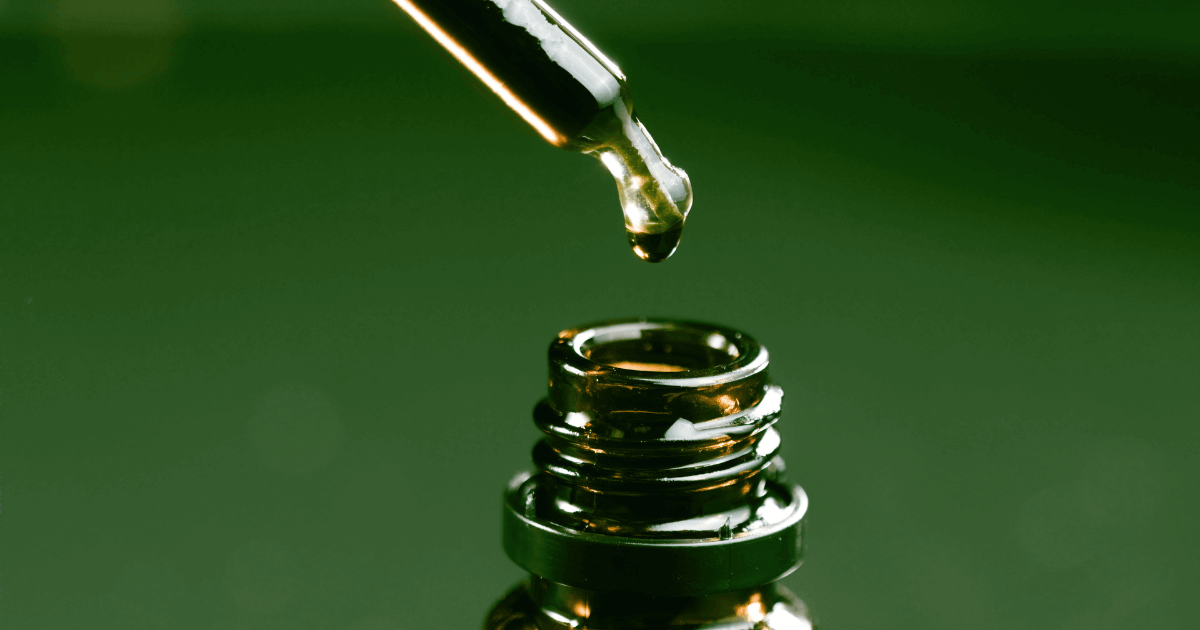CBD
What Does CBD Feel Like?
Exploring the Effects of Cannabidiol on the Body
CBD, short for cannabidiol, has emerged as a popular natural remedy and wellness supplement in recent years. Derived from the cannabis plant, CBD is non-psychoactive, meaning it won’t cause the euphoric “high” associated with its counterpart, THC. Instead, it interacts with the body’s endocannabinoid system, a complex network of receptors that play a crucial role in maintaining balance and overall well-being.
As more people seek alternative approaches to manage stress, anxiety, pain, and other common ailments, the interest in CBD’s potential benefits continues to grow. But what does CBD feel like, and what effects can it have on the body? In this exploration, we delve into the diverse effects of CBD, shedding light on its potential to provide relief and enhance overall wellness without the intoxicating side effects often associated with cannabis. From the soothing calmness to the alleviation of discomfort, join us as we uncover the intriguing world of CBD and its impact on the human body.
First Off, What is CBD?
CBD, or cannabidiol, is a naturally occurring compound found in the cannabis plant. It is one of over 100 different cannabinoids present in cannabis, alongside its well-known counterpart, THC (tetrahydrocannabinol). However, unlike THC, CBD does not have psychoactive properties, meaning it does not produce a “high” or altered state of mind when consumed.
CBD is extracted from the hemp variety of the cannabis plant, which contains only trace amounts of THC, ensuring that CBD products do not cause any intoxicating effects. This has made CBD a popular choice for those seeking the potential therapeutic benefits of cannabis without the mind-altering consequences associated with THC.
The popularity of CBD has surged due to its purported health benefits, and it is now available in various forms, including CBD oil tinctures, CBD capsules, CBD gummies, CBD vapes, topicals, and more. As research continues to unfold, CBD’s potential applications range from addressing anxiety, pain, and inflammation to supporting overall well-being and promoting relaxation. However, it’s essential to note that while CBD shows promise as a natural remedy, it is not a substitute for professional medical advice or treatment. Always consult with a healthcare provider before incorporating CBD products into your wellness routine.
Does CBD Get You High?
No, CBD does not get you high. Unlike its psychoactive counterpart THC (tetrahydrocannabinol), CBD does not have intoxicating properties. THC is the cannabinoid responsible for the “high” feeling commonly associated with marijuana use.
CBD and THC interact with different receptors in the endocannabinoid system, which is a complex network of receptors found throughout the body. THC primarily binds to CB1 receptors in the brain and central nervous system, leading to the psychoactive effects. On the other hand, CBD has a low affinity for CB1 receptors and tends to interact more with CB2 receptors, which are primarily located in the peripheral organs and the immune system.
Since CBD does not bind strongly to CB1 receptors and does not alter brain function, it does not produce the euphoric or mind-altering effects associated with THC. This property makes CBD a favorable option for those seeking potential health benefits without the risk of feeling “high” or impaired.
It’s important to note that while CBD itself does not cause intoxication, some CBD products may contain trace amounts of THC, especially if derived from full-spectrum hemp extracts. However, reputable CBD products, Like those at Keoni CBD, should contain less than 0.3% THC, which is not enough to induce a high. If you are concerned about THC content, you can opt for CBD isolates or broad-spectrum CBD products, which have undergone additional processing to remove or minimize THC levels.
What Does CBD Feel Like?
The experience of using CBD can vary from person to person, and the effects may differ depending on factors such as dosage, individual body chemistry, the method of consumption, and the specific product used. It’s important to remember that CBD does not produce a psychoactive “high” like THC, as CBD is not intoxicating. Instead, the effects of CBD are typically more subtle and focused on potential therapeutic benefits.
Many users report a sense of relaxation and calmness after taking CBD. It may help alleviate feelings of stress and anxiety, promoting a general sense of well-being. Some people find that CBD helps them unwind and may contribute to a more balanced mood.
For those dealing with discomfort or physical tension, CBD may offer relief. It is believed to have anti-inflammatory properties that could potentially help reduce pain and soreness. People with chronic pain conditions, such as arthritis, may turn to CBD as a natural alternative or complement to other pain management strategies.
Another aspect that some users notice is improved sleep. CBD might help support better sleep quality for individuals struggling with insomnia or sleep disturbances, allowing for more restful nights.
It’s important to point out that the effects of CBD can be subtle, and some individuals may not notice immediate changes. Also, responses to CBD may vary, and what one person experiences might be different from another.
As with any supplement or health product, it’s advisable to start with a low dose of CBD and gradually increase it if needed, as higher doses may not always lead to stronger effects. Additionally, if you’re considering using CBD for specific health concerns, it’s best to consult with a healthcare professional to ensure it’s suitable for your individual needs and won’t interact with any medications you might be taking.
How Does CBD Work?
CBD interacts with the body through the endocannabinoid system (ECS), a complex network of receptors and neurotransmitters that helps regulate various physiological processes and maintain internal balance, or homeostasis. The ECS plays a crucial role in ensuring the body’s overall well-being and response to different stimuli.
The endocannabinoid system consists of three main components:
- Endocannabinoids: These are endogenous cannabinoids naturally produced by the body. The two primary endocannabinoids identified so far are anandamide (AEA) and 2-arachidonoylglycerol (2-AG). Endocannabinoids are synthesized on demand and act as signaling molecules, binding to cannabinoid receptors to trigger specific responses.
- Cannabinoid Receptors: There are two main types of cannabinoid receptors in the ECS, known as CB1 and CB2 receptors. CB1 receptors are primarily found in the central nervous system, including the brain, and are responsible for regulating functions like pain perception, mood, and memory. CB2 receptors are mainly located in the peripheral organs and immune cells, playing a role in inflammation and immune responses.
- Enzymes: Enzymes are responsible for the breakdown and recycling of endocannabinoids after they have fulfilled their signalling functions. The two primary enzymes involved in this process are fatty acid amide hydrolase (FAAH), which breaks down anandamide, and monoacylglycerol lipase (MAGL), which breaks down 2-AG.
When you consume CBD, it interacts indirectly with the ECS. Unlike THC, which binds directly to CB1 and CB2 receptors, CBD has a low affinity for these receptors. Instead, it influences the ECS by modulating its activity, affecting how endocannabinoids bind to and interact with the receptors.
One way CBD affects the ECS is by inhibiting the enzymes FAAH and MAGL, leading to an increase in the levels of anandamide and 2-AG. This, in turn, can enhance the overall functioning of the endocannabinoid system and contribute to the potential therapeutic effects of CBD.
Additionally, CBD can interact with other receptors and ion channels in the body, such as serotonin receptors (5-HT1A), which play a role in mood regulation, anxiety, and sleep.
Overall, CBD’s interaction with the endocannabinoid system and other receptors in the body is believed to contribute to its potential health benefits, such as promoting relaxation, reducing anxiety, alleviating pain and inflammation, and supporting overall well-being. However, it’s essential to note that research into CBD’s mechanisms of action is ongoing, and more studies are needed to fully understand its effects on the body.
What are the Effects and Uses of CBD?
CBD has gained popularity for its potential therapeutic effects and wide range of uses.
While more research is needed to fully understand its benefits and limitations, here are some of the reported effects and common uses of CBD:
- Anxiety and Stress Relief: One of the most well-known uses of CBD is its potential to reduce anxiety and stress. Many users report feeling calmer and more relaxed after using CBD, which may be attributed to its interaction with serotonin receptors in the brain.
- Pain Management: CBD is believed to have anti-inflammatory properties, making it a popular option for individuals seeking relief from chronic pain conditions like arthritis, migraines, and neuropathic pain.
- Sleep Improvement: Some people find that CBD helps them sleep better by promoting relaxation and reducing anxiety, potentially assisting with insomnia and sleep disturbances.
- Epilepsy and Seizure Disorders: Epidiolex, a CBD-based medication, has been approved by the FDA for treating certain rare forms of epilepsy, such as Lennox-Gastaut syndrome and Dravet syndrome.
- Neuroprotective Effects: CBD has shown potential as a neuroprotective agent, meaning it may help protect brain cells from damage and oxidative stress. This has led to investigations into its potential role in treating neurodegenerative diseases like Alzheimer’s and Parkinson’s.
- Acne Management: The anti-inflammatory properties of CBD may help reduce sebum production and inflammation, making it a potential option for managing acne.
- Substance Abuse Treatment: Some studies suggest that CBD may aid in reducing drug cravings and withdrawal symptoms, making it a potential adjunct therapy for substance abuse treatment.
- Nausea and Vomiting: CBD may help alleviate nausea and vomiting, especially in individuals undergoing chemotherapy or experiencing motion sickness.
- Inflammatory Bowel Disease (IBD): Preliminary research suggests that CBD might have a positive impact on inflammation and symptoms associated with IBD, such as Crohn’s disease and ulcerative colitis.
- Support for Mental Health Disorders: While research is ongoing, there is interest in exploring CBD’s potential as a complementary therapy for conditions like depression, post-traumatic stress disorder (PTSD), and obsessive-compulsive disorder (OCD).
It’s important to note that the effects and uses of CBD can vary from person to person, and individual responses may differ. Furthermore, CBD is not a substitute for professional medical advice or treatment, and it’s crucial to consult with a healthcare provider, especially if you have any existing medical conditions or are taking medications. Additionally, the quality and safety of CBD products can vary, so it’s essential to choose reputable brands and products for the best results.
Important Things to Know When Taking CBD
When considering or starting to take CBD, there are several important things to know to ensure a safe and positive experience.
Here are some key points to keep in mind:
- Consult with a Healthcare Professional: Before incorporating CBD into your wellness routine, it’s crucial to consult with a healthcare professional, especially if you have any underlying health conditions, are taking medications, or are pregnant or breastfeeding. A healthcare provider can provide personalized advice and help determine the appropriate dosage and form of CBD for your specific needs.
- Start with a Low Dosage: When trying CBD for the first time, start with a low dosage and gradually increase it if needed. Everyone’s response to CBD can vary, and higher doses may not always lead to stronger effects. Starting low allows you to gauge how your body responds and helps you find the right dosage for you.
- Choose Quality Products: With the increasing popularity of CBD, the market has become saturated with various products. To ensure safety and effectiveness, purchase CBD products from reputable brands that provide third-party lab testing results. Look for products that are free from harmful additives and contaminants.
- Understand THC Content: While CBD products are required to contain less than 0.3% THC to be legally sold in the United States, some full-spectrum CBD products may still have trace amounts of THC. If you want to avoid THC entirely, consider broad-spectrum CBD products or CBD isolates, which have undergone additional processing to remove THC.
- Consider the Method of Consumption: CBD is available in various forms, including oils, tinctures, capsules, edibles, topicals, and more. Each method of consumption has its own onset time and duration of effects. For example, sublingual oils and tinctures typically have faster absorption, while edibles may take longer to kick in but provide longer-lasting effects. Choose a method that aligns with your preferences and desired outcomes.
- Be Patient and Consistent: CBD’s effects may not be immediately noticeable for everyone. It’s essential to be patient and consistent with your CBD use, taking it regularly as part of your wellness routine to potentially experience the full benefits over time.
- Potential Side Effects: While CBD is generally well-tolerated, some individuals may experience mild side effects, such as dry mouth, drowsiness, or changes in appetite. If you encounter any adverse reactions, consider adjusting the dosage or method of consumption.
- Interactions with Medications: CBD can interact with certain medications, particularly those metabolized by the liver’s cytochrome P450 enzyme system. These interactions can impact how medications are processed, potentially leading to unintended effects. Always inform your healthcare provider about any CBD use to ensure there are no potential drug interactions.
- Storage and Shelf Life: Properly store CBD products according to the manufacturer’s instructions to maintain their quality and potency. Check the expiration date and use the product before it expires.
- Legality: The legal status of CBD can vary depending on your location. Before purchasing or using CBD products, ensure that they are legal in your country or state.
By being informed and mindful, you can make the most of your CBD experience and potentially reap the benefits it may offer for your overall well-being.
You Can Buy CBD Online in Canada at Weed Delivery Vancouver
In the vast and picturesque landscapes of Canada, where majestic mountains and pristine forests meet bustling cityscapes, a new era of wellness has dawned. As the winds of change sweep across the nation, the health-conscious population has discovered a remarkable opportunity to embrace the therapeutic potential of CBD.
From coast to coast, word spreads like wildfire about a business that has emerged as a beacon of trust and reliability – Weed Delivery Vancouver. With an array of high-quality CBD products that cater to diverse needs, Weed Delivery Vancouver has become the go-to destination for those seeking the soothing effects of cannabidiol. See why we are rated as one of the best mail-order CBD dispensaries.
As the convenience of the digital age intertwines seamlessly with the age-old pursuit of wellness, Canadians find solace in knowing that they can buy CBD online at Weed Delivery Vancouver – a gateway to enhanced relaxation and rejuvenation for the mind and body.
References
Fletcher, J. (2019, July 26). A comparison of CBD and THC. Medical News Today. Available at: https://www.medicalnewstoday.com/articles/325871
Government of Canada. A FRAMEWORK FOR THE LEGALIZATION AND REGULATION OF CANNABIS IN CANADA. Available at: https://www.canada.ca/content/dam/hc-sc/healthy-canadians/migration/task-force-marijuana-groupe-etude/framework-cadre/alt/framework-cadre-eng.pdf
Daily Marijuana. (2023, September 1). Buy CBD Online in Canada. Available at: https://dailymarijuana.io/shop/cbd-canada/
Centers for Disease Control and Prevention (CDC). (2023). CBD: What You Need to Know. Available at: https://www.cdc.gov/marijuana/featured-topics/CBD.html



